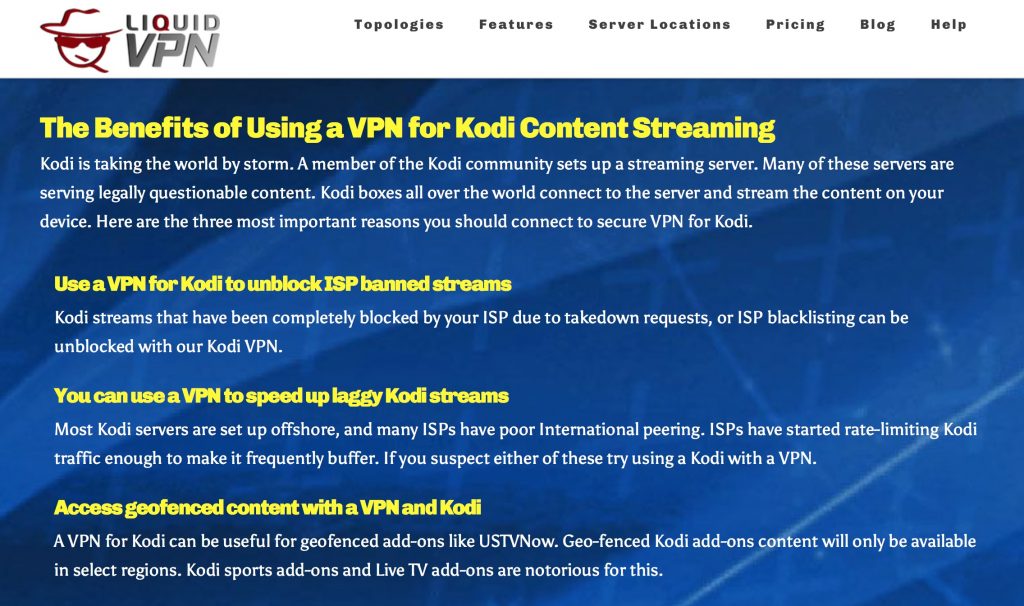Three Hollywood rights holders are suing LiquidVPN and its owner for intentionally encouraging “anonymous viewing” of their content as a feature of LiquidVPN’s network access service. LiquidVPN says it’s a way to avoid jail time. The site continued in operation at the time of this writing.
Read more in The Hollywood Reporter, which includes the 40-page legal complaint filed by the rights holders.

Why it matters
VPNs constitute a gray area when it comes to piracy. The plaintiffs’ position that LiquidVPN is inviting them to a brawl is difficult to ignore. But what about VPN use from the consumer’s perspective? Consumers do have a right to privacy. But is there a legal precedent that defines a balance between personal privacy and breaking copyright law?
It’s one of those things that “everybody does” – we all know people who share passwords. We also all know people that use VPNs to disguise their location in order to access local sports programming that’s blacked out locally, because the sports league wants consumers to watch on pay TV or even own a stake in the sports TV network that’s licensed to carry the programming (which is the case between Root Sports Northwest and the Seattle Mariners baseball team).












